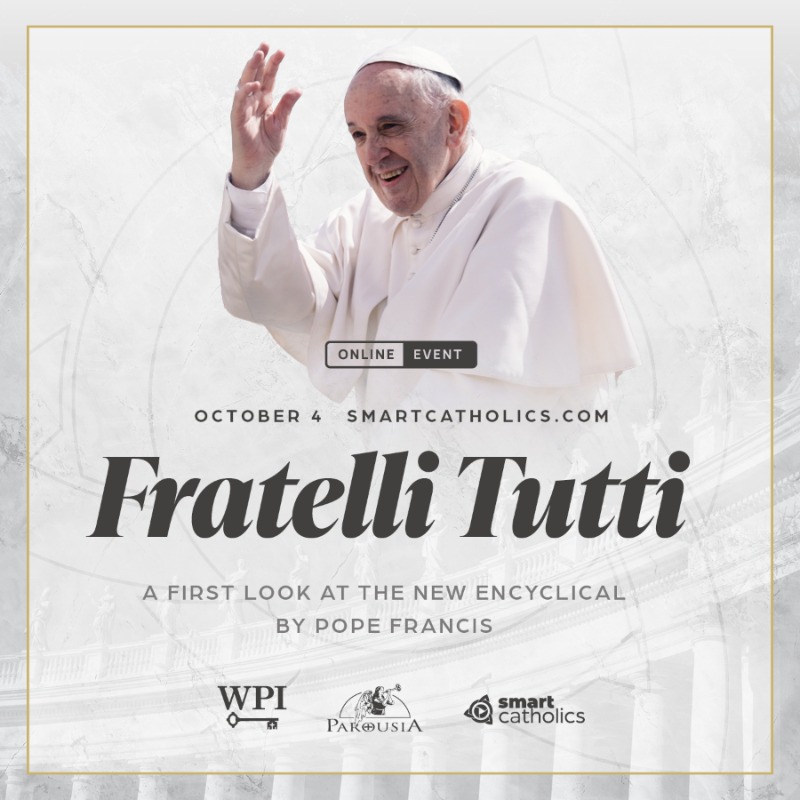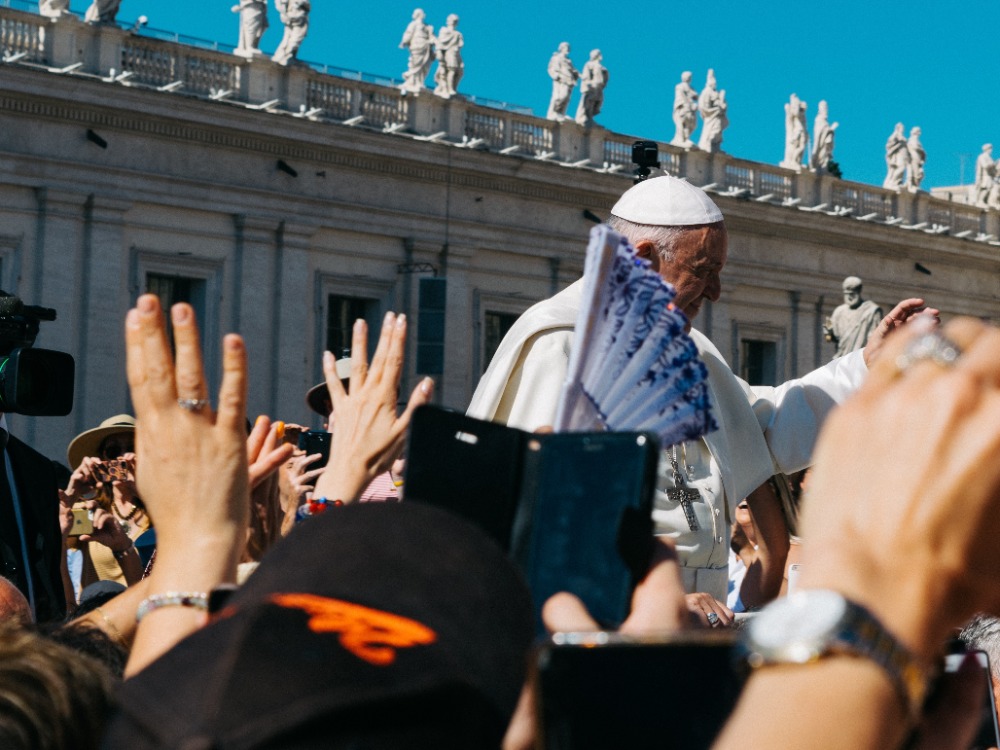
These Christian convictions of Fratelli tutti are contained in the reference to the Second Vatican Council: "The joys and hopes, the sorrows and anxieties of the people of our time, especially the poor and those who suffer, are at once the joys and hopes, the sorrows and anxieties of Christ's disciples" (Gaudium et spes, 1).
Therefore, it starts from a look at the world that "is more than an aseptic description of reality". Fratelli tutti st is an "attempt to seek a light in the midst of what we are living", a search open to dialogue and with the purpose of "proposing lines of action" (56).
The method is that proper to ethical and pastoral discernment, which seeks, as the word indicates, to distinguish the path of good for the good of the people. to channel, by overcoming the risks of unilateral polarization, personal actions in the context of society and cultures.
When dealing with fraternity and social friendship, in Fratelli tuttithe Pope declares that he stops at the universal dimension of fraternity. It is not in vain that one of the key points of the document is the rejection of individualism. "We are all brothers", members of the same human family, which comes from a single Creator, and which sails in the same boat..
. Globalization shows us the need to work together to promote the common good and care for life, dialogue and peace.

Fratelli tutti, on fraternity and social friendship is a social encyclical, written from "Christian convictions".
Although there is no lack of recognition of scientific-technological advances and of the efforts of many to do good - as we have seen on the occasion of the pandemic -, we are faced with the "the shadows of a closed world"(chapter 1): manipulations, injustices and selfishness, conflicts, fears and "culture of walls", xenophobia and contempt for the weak.
Dreams are broken, a common project is lacking and the difficulty in responding to personal and social crises is evident. "We are more alone than ever in this overcrowded world where individual interests prevail. and weakens the communitarian dimension of existence" (12).
All this manifests the "accentuation of many forms of individualism without contents"(13) and it is happening in the face of "an unacceptable international silence" (29). To overcome cynicism, to fill the void of meaning in life and to avoid violence, we need, says the Pope, "to recover the shared passion for a community of belonging and solidarity" (36).
How to respond to this situation? How to achieve a true openness to the world, that is to say, communication that makes us better and contribute to the betterment of society?
The gospel presents the figure of the good Samaritan (chapter 2: "A stranger on the road"). He makes it clear to us that "the existence of each of us is linked to that of others: life is not a passing time, but a time of encounter" (n. 66).
We are made for a fullness that can only be reached in loveIt is not an option to live indifferent to pain, we cannot let anyone remain 'on the sidelines of life'. This we should be outragedto the point of bringing us down from our serenity to altered by human suffering" (68).
In our lives there are always an opportunity to start living fraternity again. To answer the question "Who is my neighbor?", Jesus "does not invite us to ask ourselves who are those who are close to us, but rather to to become close to us, our neighbors" (80).
For this reason there is no excuse for slavery, closed nationalism and mistreatment. towards those who are different: "It is important that catechesis and preaching include in a more direct and clear way the social meaning of existence, the fraternal dimension of spirituality, the conviction about the inalienable dignity of each person and the motivations to love and welcome everyone" (86).
The opening is a key word in Fratelli tutti. For "thinking and creating an open world"(title of chapter 3), you need ".a heart open to the whole world"(chapter 4). One guarantee is the openness to transcendence, openness to Godthe opening to the Father of allGod is love, and he who abides in love abides in God" (1 Jn 4:16).
Declares Francis: "I was particularly encouraged by the Grand Imam Ahmad Al-Tayyeb, whom I met in Abu Dhabi to recall that God 'has created all human beings equal in rights, duties and dignity, and has called them to live together as brothers among themselves' (Document on Human Fraternity for World Peace and Common Coexistence, Abu Dhabi, 4-II-2019) (5).
For Christians, "faith fills with unheard-of motivations in recognition of the other, because the one who believes can come to recognize that God loves every human being with infinite love and that 'this confers on him an infinite dignity' (John Paul II, Message to the Disabled, November 16, 1980)" (85). Proof of this is that "Christ shed his blood for each and every one, so that no one remains outside his universal love" (Ibid.).
In the background of this universal dimension of human fraternity that the Pope wishes to promote is what is truly valuable, because not everything is worth the same: "A culture without universal values is not a true culture" (John Paul II, Discourse, December 2, 1987) (146). The truth is discovered with wisdomwhich involves the encounter with reality (cf. n. 47).
The truth does not impose or violently defend itselfbut opens up in love. Also the truth of human dignityThe inalienable dignity of every human person, regardless of origin, color or religion, and the supreme law of fraternal love" (39). At the same time, the relationship of love with truth protects it from being mere sentimentalism, individualism or humanism closed to transcendence (cf. 184),
The real dialogue (see chapter 6: "Dialogue and social friendshipThe "negotiation") has nothing to do with mere negotiation in search of particular benefits: "...".Heroes of the future will be the ones who will be able to break this unhealthy logic and decide to hold with respect a word loaded with truthbeyond personal convenience. God willing, these heroes are silently brewing in the heart of our society" (202).
Nor does dialogue have anything to do with manipulated consensus or imposed relativism: "Dialogue has nothing to do with manipulated consensus or imposed relativism.There are no privileges or exceptions for anyone in the face of moral norms that prohibit intrinsic evil.. There is no difference between being the master of the world or the last of the wretched of the earth: before moral demands we are all absolutely equal" (John Paul II, Enc. Veritatis splendor, 96) (209).
It is necessary to look for a new culture that recovers kindness. To start again from truth, together with justice and mercy, and the craftsmanship of peace (see chapter 7: "Roads of reunion"). This is why war and the death penalty must be opposed. And religions are called upon to collaborate in the front line of this project (cf. chapter 8: "Religions, at the service of fraternity in the world"). It is not possible to silence God neither in society nor in the heart of man:
"When, in the name of an ideology, one wants to expel God from society, you end up worshipping idolsand immediately man is lost, his dignity is trampled upon, his rights violated" (274). Christians believe that in him we find the authentic source of human dignity and universal brotherhood (cf. 277).
Mr. Ramiro Pellitero IglesiasProfessor of Pastoral Theology at the Faculty of Theology at the University of Navarra.
Published in Church and new evangelization